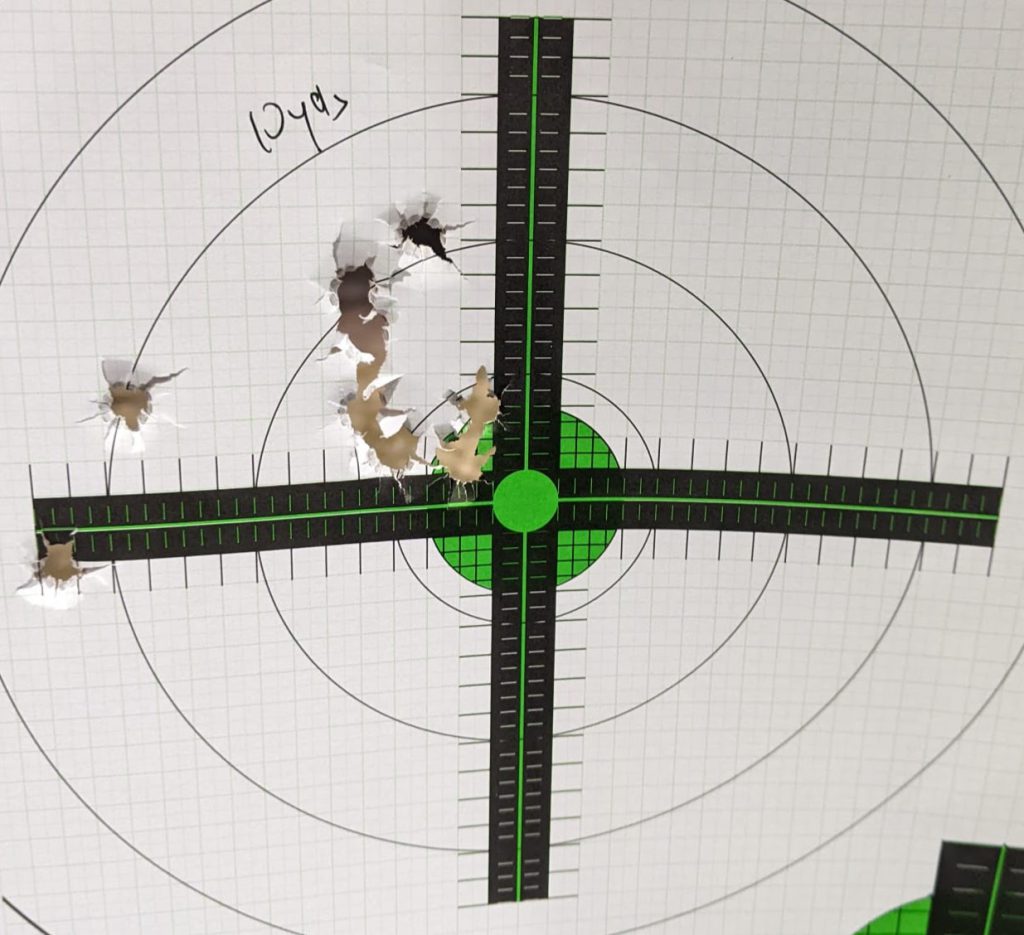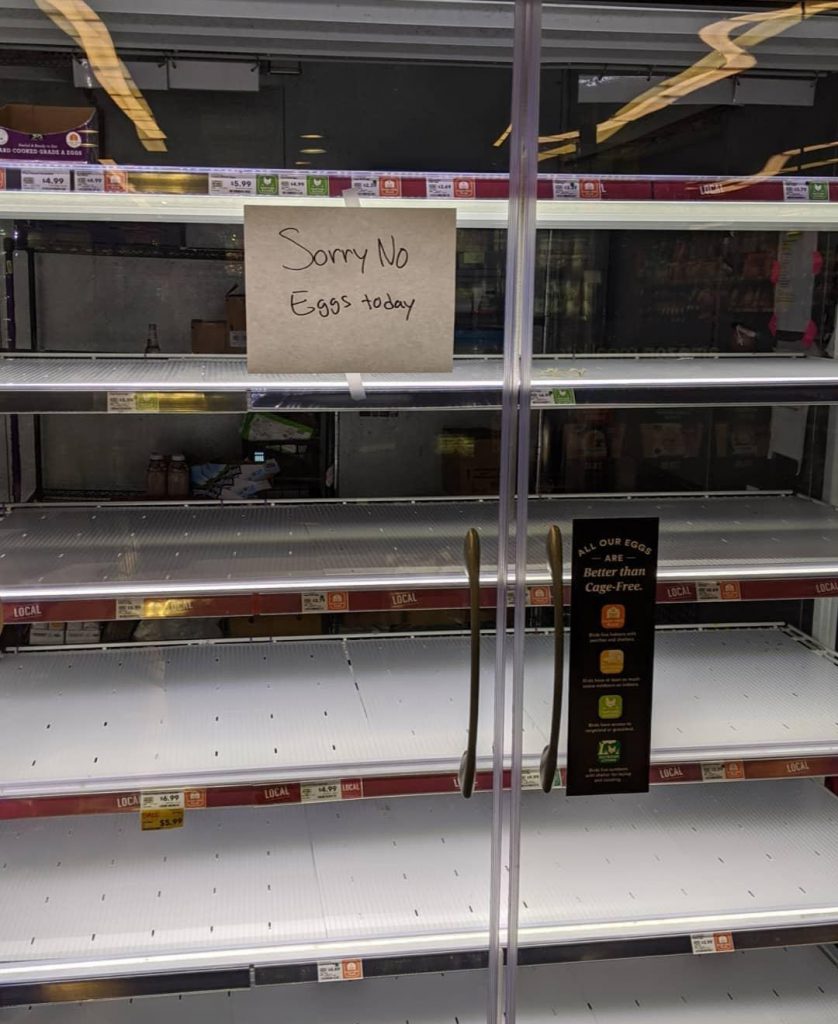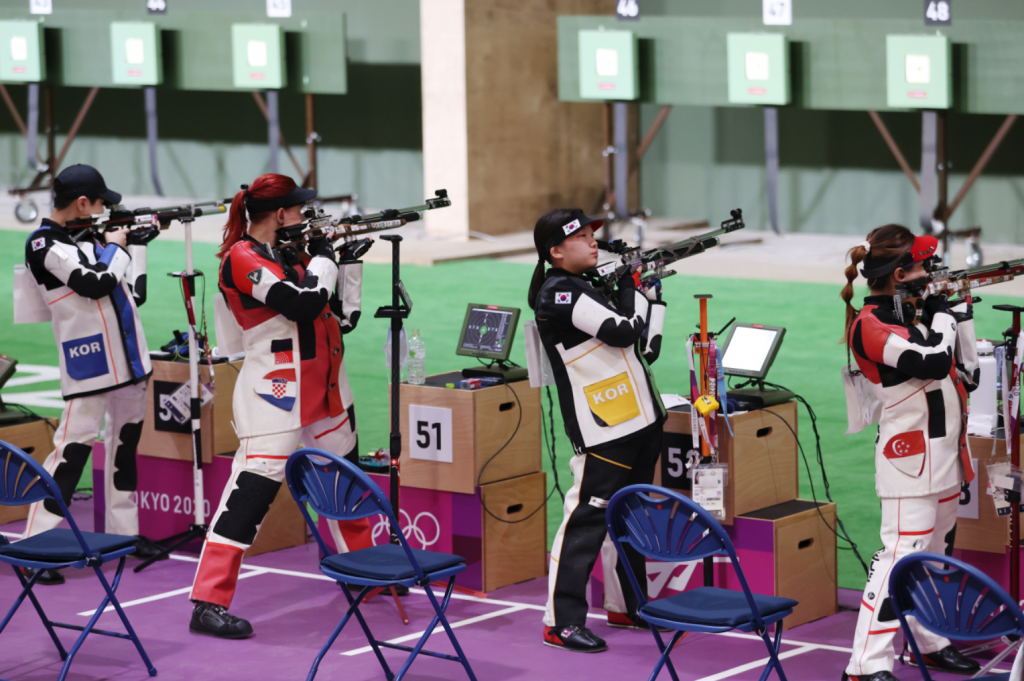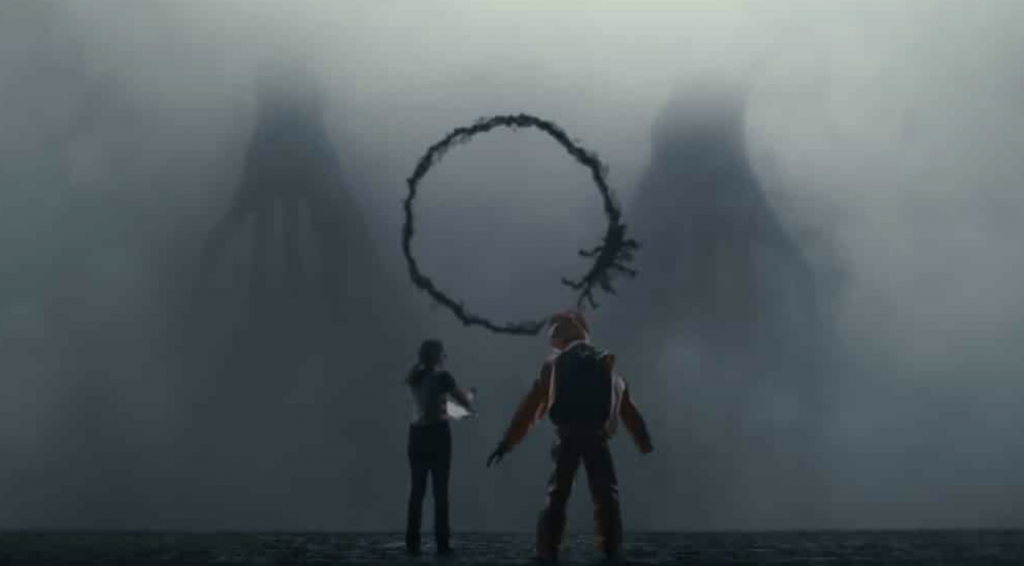A bad day for you is considered a catastrophic failure for us.
You’re probably asking what’s catastrophic failure (apart from being fun to say)? What’s a bad day? Why do we see this as a catastrophic failure? Why the hell, do I (we) think we become the best?
Catastrophic failure is this overwhelming sense that we have failed severely. It makes us feel like we cannot provide, it makes us feel like we do not belong, it makes us feel like we are less than everyone around us.
A bad day is when you’re off the mark, by a small margin, but you feel every millimeter of being off bullseye.
For example, take my pistol marksmanship at 10 yards, in particular, the one round closest to the center of the target. That’s a bad day. I was so close!

Now, why do we see a bad day as a catastrophic failure? Being approximately 5mm off bullseye is pretty good in most cases, right?
No. It’s not.
Welcome to the immigrant mindset. It’s instilled within us.
Let’s transition away from the bullseye analogy briefly.
The story goes, our parents immigrated here, to America, with a single suitcase, the clothes on their back, and maybe enough money to buy food for a week (if that).
We (albeit not all of us) grew up with scarcity. This same narrative is true for millions of immigrants. Alongside that single suitcase, is an attitude, work ethic, and an ethos – failure is not an option.
There is no room for failure. And there is certainly no room for waste.
One single fuck up, the family won’t have food on the table.
One single fuck up, the rent doesn’t get paid.
One single fuck up, your sibling can’t get medical care.
One single fuck up, you have to somehow immigrate to where you came from.
One single fuck up.
Let’s deep dive about this idea of fucking up and how it relates to scarcity.
Do you remember the early days of the pandemic, where we all had to wait, in neat, single file lines to get our groceries?
Questions that probably ran through your head while waiting include:
“What if they don’t have toilet paper?”
“What if they’re out of baby formula?”
“What if they’re out of food?”
Do you remember how you felt, when that one critical ingredient (maybe flour?) was not in stock?
That feeling of not getting what you want, without any consistency, is scarcity. Take that feeling and amplify it. Amplify it again. And amplify 1000x more times.
Our parents (and some of us) lived through an early life with A LOT of scarcity. Scarcity was the only constant in their lives.
Remember what grocery stores shelves looked like at the beginning of the pandemic? I took this photo on March, 15th, 2020.

Imagine holding that feeling of scarcity for nearly 80% (if not more) of your adult life. Imagine going to the grocery store and always seeing empty shelves.
Imagine. Every. Day. You wake up and you have that sense of dread. That sense of not having enough of anything to sustain you, your family, or anyone else close to you.
That’s scarcity.
Let’s bring scarcity together with fucking up and catastrophic failure.
Suddenly, after missing the mark (a bad day), the feedback monster rears its ugly head and our brains go into survival mode.
We have now hit catastrophic failure.
Will I have a job tomorrow?
Will I get fired for this?
How can I be so dumb as to not think this out?
What if I lose my job and my house?
How did I forget to add that one task to the agenda?
How did I mess up that feature?
Then your brain really goes into overdrive.
If I lose my job, how will I take care of my family and my aging parents?
If I lose my job, it’ll be impossible for me to get a new job.
If I lose my job, I’ll have to move away from everything I love.
If I lose my job, I’ve lost EVERYTHING.
A single fuck up can trigger all this emotion with a relentlessness that is difficult to quiet and subdue.
This type of scarcity trauma, no matter how much therapy you’ve had, stays with you (it takes about 1 generation to go away).
Any professional “bad day” triggers immigrants (us) to work harder. It dictates that we stay up later, learning, reading, researching, practicing.
This failure dictates that we never, ever, let that same mistake happen ever again.
You can view the feedback monster as the parents of imposter syndrome. Makes sense?
Now, why do we think we’re better (than most)?
We take the time, energy, and resources necessary to learn, educate, and find an optimization, a better solution, or pick a definitive, concise way of communicating an idea.
That time with a leader is scarce, the time you have on stage to present is scarce, the opportunity to show up and be seen is scarce.
We have learned to use scarcity as our scalpel. We know how to work with less. Less time, less money, less people. Less tools.
How many times have you seen a peer, repeatedly make the same mistake? How many times have you seen a peer, refuse to learn more context about their role? How many times have you seen a peer, fumble over a presentation or a meeting?
We see this anti-pattern aptly called, “failing upwards”. We refuse to fail either upwards or downwards. So we invest ourselves until there’s nothing to spend. Then, when we’re ready for that meeting, that project, that presentation, we suddenly have a discovery.
The bar has been moved. Again.
The rules of the game have changed Again.
Let’s go back to the bullseye analogy.

Imagine you’re behind the shooting stand. You learned from prior matches what you need to do to hit that bullseye at 10 yards. You have good posture, proper technique, and the right equipment. Practice has shown, hitting a 10 yard bullseye while challenging (for most), is a known, proven process for you and your equipment.
You line up to take your shot, only to realize someone has moved the target an additional 10 yards away. That additional 10 yards has introduced a slight breeze, ever so gently moving the target around. Your target stares back at you, waiving, from 20 yards away. Additionally, you’ve only been given five founds of ammunition.
You had no say in the matter nor have any control over where that target could have been placed much less moving it back to a proper 10 yards.
For months, you prepared with the documented requirements, for a stationary target at 10 yards and 5 rounds. You trained to hit your target with 3 rounds – you already know ammunition scarcity would be a risk. You trained to hit your target at 15 yards. You knew there would be a risk of distance inflation.
Now, imagine the person next to you, quite arbitrarily, moving their target to be within 5 yards of the bench versus your current 20 yards. You discover, they have been given twenty rounds of ammunition to hit bullseye.
At twenty yards with the breeze, you managed to be 5mm off center using 4 of your 5 rounds. The other person? They were able to hit 4mm off bullseye by their 15th round. They win because they were simply closer to the bullseye regardless of circumstance.
Let’s wrap up this analogy.
After the competition, your competitor gets applause, wins the trophy and award money. As a courtesy, they come by and wish you well. Then, a coach from the other team, stops at your stand, and quite loudly exclaims, “Hey, I’ve got some feedback on your form that may help you hit bullseye. Did you factor wind with your training? How did you train your stance, you should have trained to hit bullseye at 25 yards and you need to adjust your posture. Next time, don’t forget to account for wind! Today was simply a bad day, you’re still a good marksman!”
“Thanks!” you say while proceeding to pack up your equipment, walking the 20 yards to retrieve your target, with the other team, the other coach, the audience watching.
Do you, dear reader, have an understanding why a bad day to us, feels like catastrophic failure? Do you see, how scarcity drives us? Do you feel the weight of the feedback monster, sitting across from you?
